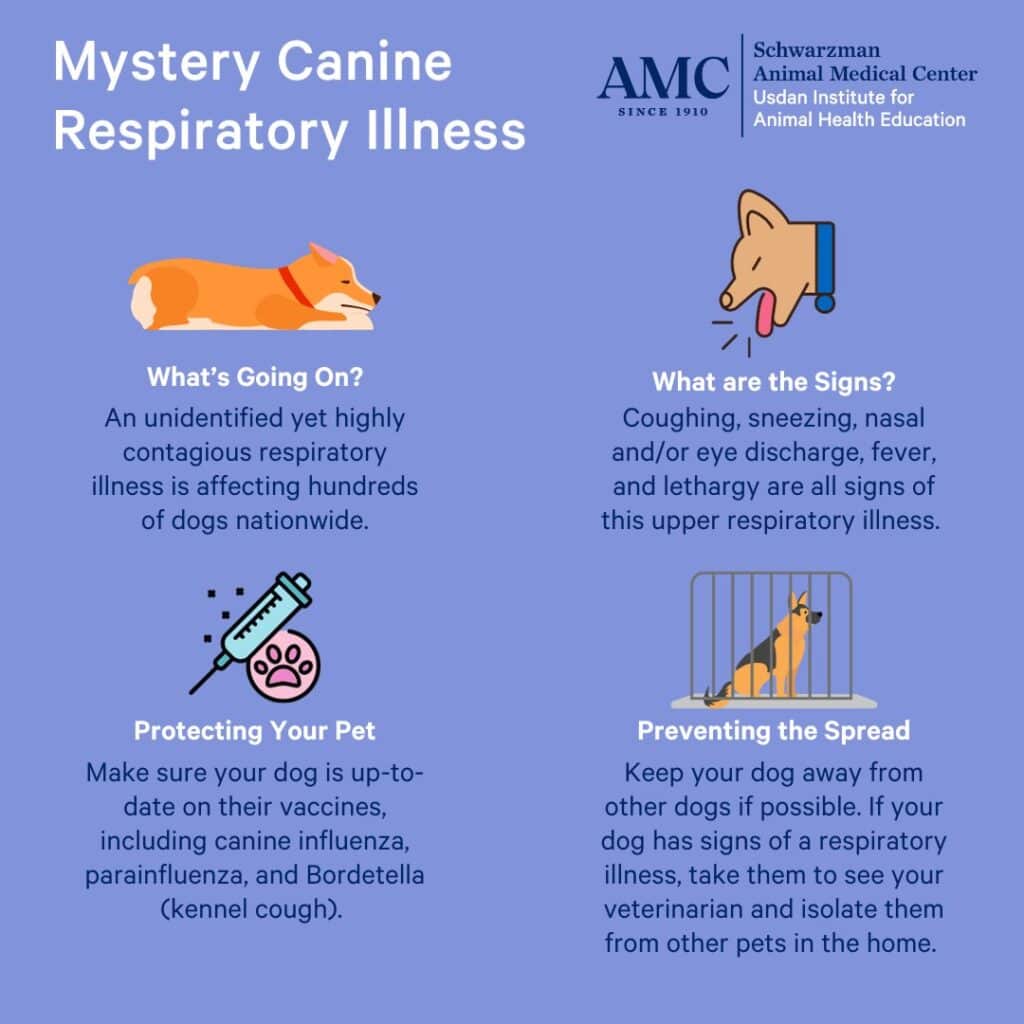For those of us in the dog world, much of our focus over the last couple of weeks has been on infectious respiratory diseases in dogs. While the current outbreak remains a mystery, today’s blogpost will focus on the...
For those of us in the dog world, much of our focus over the last couple of weeks has been on infectious respiratory diseases in dogs. While the current outbreak remains a mystery, today’s blogpost will focus on the well documented link between respiratory and gastrointestinal illness in dogs. The link between these two body systems might surprise the casual reader; however, the two systems share a common origin: the mouth. The mouth divides into the trachea (windpipe) of the respiratory system and the esophagus leading to the stomach.
Respiratory and Gastrointestinal Diseases in Brachycephalic Dogs
Scientists initially identified the link between respiratory and gastrointestinal illnesses in snub-nosed dogs, also known as brachycephalic breeds. These breeds include perennial favorites like pugs, French bulldogs, English bulldogs, Boston terriers, etc. These dogs’ small nostrils and narrow windpipes make breathing difficult, putting them at risk for a condition called brachycephalic obstructive airway syndrome. A 2005 study found a correlation between the severity of the respiratory signs from brachycephalic obstructive airway syndrome and the severity of gastrointestinal illness signs. Using endoscopy to view the esophagus and stomach in these dogs, veterinarians found multiple abnormalities, including inflammation of the stomach and esophagus. Some dogs also had stomachs that slipped up into their chest, while others had abnormally long esophagi, and yet others developed acid reflux.
Respiratory and Gastrointestinal Diseases in West Highland White Terriers
The West Highland White Terrier is clearly not a brachycephalic breed, yet the Westie is another breed commonly diagnosed with respiratory disease. Unlike brachycephalic dogs, who often have issues with their upper airway, Westies develop lower airway (lung) disease. Westies with lung problems appear to have more acid reflux and accidentally breathe the reflux into their lungs more often than normal dogs do, according to a 2018 study. In this respect, respiratory disease in Westies is similar to that of the brachycephalic breeds.
 A West Highland White Terrier
A West Highland White TerrierThe Good News for Dogs with Respiratory and Gastrointestinal Diseases
There is hope for dogs that suffer from these diseases. Treating both respiratory and gastrointestinal diseases at the same time works. Long-term studies of dogs undergoing airway surgery and medical treatment of gastrointestinal disease show improvement with these interventions. Adjusting a dog’s diet may also be beneficial in reducing reflux and thus improving respiratory disease.
Hospitals like the Schwarzman Animal Medical Center have specialist veterinarians who can perform endoscopy of the respiratory and gastrointestinal tracts to pinpoint the cause of a dog’s clinical signs. We can also perform fluoroscopy, which is a video x-ray, to monitor the progress of food from the mouth to the stomach to determine if swallowing is abnormal and might be linked to respiratory disease.
So I hope you won’t be surprised if your veterinarian treats your coughing dog with medications for gastrointestinal disease!











